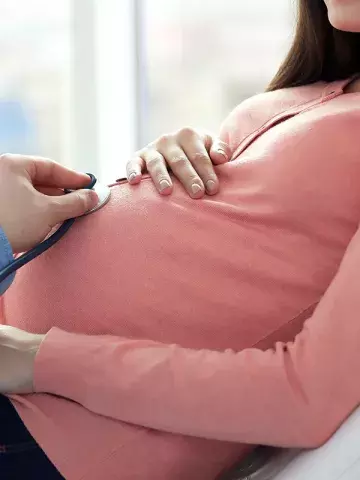Endocrine therapy for early breast cancer can be safely paused for pregnancy
By Rebecca Jenkins
Women with hormone receptor-positive early breast cancer can temporarily pause endocrine therapy to attempt to conceive without increasing their short-term risk of breast cancer, a study finds.
The international, multi-centre, POSITIVE (Pregnancy Outcome and Safety of Interrupting Therapy for Women with Endocrine Responsive Breast Cancer) trial enrolled 516 eligible women who had had stage I, II or III breast cancer and wanted to conceive.
The women were all aged 42 years or younger and had received adjuvant endocrine therapy for 18 to 30 months, the researchers wrote in The New England Journal of Medicine.
Under the study protocol, patients could discontinue therapy for up to two years to attempt pregnancy and, if conception was successful, then deliver and potentially breastfeed their child.
Among 497 women who were followed for pregnancy status, 368 (74%) had at least one pregnancy and 317 (63.8%) had at least one live birth, researchers reported.
The three-year incidence of breast cancer events was 8.9% in the treatment-interruption group compared with 9.2% in an external control cohort of women who would have met the entry criteria for the trial.
‘In the current trial, we observed 44 breast cancer events during 1638 patient-years of follow up, a result that was close to, but did not exceed, the primary analysis safety threshold of 46 breast cancer events during 1600 patient-years,’ the researchers said.
Study co-investigator Professor Christobel Saunders, James Stewart Chair of Surgery at Royal Melbourne Hospital and Director of Research at Melbourne Medical School, University of Melbourne, said on diagnosis, young women had pressing concerns about the impact of breast cancer on their future fertility.
‘Given these findings, we can say that overall, for young women who have had hormone receptor-positive early breast cancer, it appears safe to temporarily interrupt endocrine therapy after at least 18 months of treatment to attempt pregnancy without compromising their cancer outcomes and without any apparent harm to the offspring,’ she told Medicine Today.
Professor Saunders noted that the women in the study underwent a three-month treatment washout period before attempting to conceive and were strongly advised to resume therapy once pregnancy and breastfeeding were completed or they had abandoned attempts to conceive.
‘Not all have done so (about 80% have resumed therapy) and this may compromise eventual cancer outcomes,’ she said.
‘We do need to follow up this population for a longer period and we have not as yet explored outcomes in higher risk women.’


